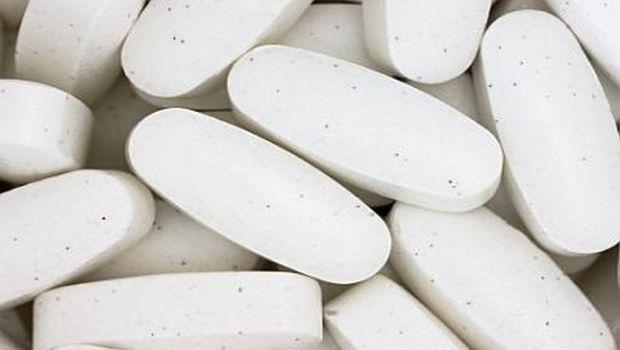A Taste in Metal
Studies not only show Americans are failing to meet the RDA for magnesium, but a large body of research indicates supplementation offers an array of potential health benefits.

Magnesium is a mineral of vital importance. “Magnesium is ranked fourth on the list of physiologically significant minerals, behind only sodium, potassium and calcium," explained Patrick Stano, vice president of sales and marketing for North America, Dr. Paul Lohmann Inc. According to Rocio Aramburo, market development manager, Health & Nutrition at Jungbunzlauer Inc., “The great physiological importance of magnesium results from its involvement in a large variety of biological functions, its intervention in enzymatic reactions (more than 300 enzymes) and its role in membrane function and neuromuscular excitability."1 Furthermore, magnesium plays structural roles in bones, cell membranes and chromosomes, and it is also required for the synthesis of nucleic acid (DNA and RNA), protein, carbohydrates and lipids, as well as for the antioxidant glutathione.2 Sam Wright IV, CEO, The Wright Group, summed it up nicely: “Magnesium has become a superstar among the mineral group."
Who Needs Magnesium?
The short answer to this question is everyone. “Magnesium is important at all stages of life, from children and teenagers to seniors. It is recommended during pregnancy and lactation, for supplementing sports nutrition and preserving well-being and serenity in coping with the stressful conditions of modern life," indicated Vanessa Agnolutto, communication manager at Nexira.
Agnolutto added, “Western diets are traditionally poor in magnesium. According to the World Health Organization (WHO) data, a survey of mean daily magnesium consumption revealed that intake was only 68 percent of the RDA of magnesium for women, and 80 percent of the RDA for men. The average pregnant woman in the United States consumes only 34 to 58 percent of her RDA for magnesium." Likewise, data from USDA’s Agricultural Research Service has shown that 57 percent of the U.S. population does not meet the RDA for levels of magnesium. 3
In addition, there are some population groups with a specific need for magnesium. “It has been shown that diabetics do not have enough of this vital mineral.4 Magnesium actually helps control blood glucose.5,6 Heart patients and diabetics require supplementation with magnesium. There is a vast amount of research on these topics," explained Philip H. Merrell, Ph.D., technical market manager at Jost Chemical Co.7,8,9,10,11,12 Max Motyka, MS, RPh, director of sales and marketing at Albion, Human Nutrition Division added, “The clinical manifestations of magnesium deficiency include a wide range of cardiac, metabolic and neurologic effects."13 Likewise, research has shown that low levels of magnesium continue to be a significant clinical disorder in patients with alcoholism, those treated with magnesium-lowering drugs (diuretics, cancer chemotherapy agents, etc.),14 thyrotoxic goiter, hypothyroidism and obesity.15
Health Applications for Magnesium
Research indicates that there are several health applications for supplemental magnesium. “Considering the occurrence of magnesium deficiency in our society, magnesium is perceived as the next key mineral to support good health and be part of innovative supplements that promote bone health, mental health, diabetes, relaxation and sports nutrition, among many others," Aramburo suggested. Both Aramburo and Agnolutto pointed out that the European Food Safety Authority (EFSA) Scientific panel approved 10 health claims related to magnesium.16
Motyka shared recent research showing that magnesium may have value in the treatment, management or prevention of depression,17,18 emotional reactions to stress,19 and birth defects in humans, including spina bifida.20 Similarly, Chris D. Meletis, N.D., Trace Minerals Research, shared research showing that 450 mg/day of magnesium as magnesium chloride is as effective in the treatment of depressed elderly type 2 diabetics (with low magnesium levels) as 50 mg/day imipramine (Tofranil).21 Motyka also highlighted research demonstrating an inverse relationship between magnesium and metabolic syndrome.22
Jennifer Gu, Ph.D., vice president of R&D, AIDP, Inc., suggested the most exciting new research on magnesium is probably its role in brain functions. She shared data that AIDP’s Magtein (magnesium l-threonate) was found to effectively cross blood-brain barrier. “Recent publications have shown that Magtein improves the memory and cognitive functions,23 reduces stress and anxiety,24,25 and helps prevent the decline and reverse the symptoms of neurodegenerative diseases, including Alzheimer’s,"26 Gu said.
Bioavailability Issues with Magnesium Salts
“Magnesium salts vary in terms of solubility, dissolution characteristics, stability, taste and bioavailability. Several scientific studies indicate that organic mineral salts outperform inorganic mineral sources with regard to their relative bioavailability, in part because the organic forms are more water soluble," Aramburo explained.52 Some examples of magnesium salts with poor water solubility include oxide, carbonate and hydroxide, while those with greater solubility include citrate, lactate and chloride and trimagnesium citrate.53 At the same time, Stano pointed out that each salt has different physical properties, including the percentage of magnesium. “All these properties have to be taken into consideration when you are trying to determine the best form of magnesium to use in a dietary supplement."
Merrell indicated Jost Chemical Co. produces several magnesium salts, including citrate, lactate, gluconate, phosphate di- and tribasic, aspartate, malate and ascorbate, “which are all chelated and offer high bioavailability."54,55,56,57,58 Nexira offers a novel purified natural marine magnesium extract called Simag™, which is available in soluble/insoluble powders, and according to Agnolutto, “contains different magnesium salts, which can be found naturally in sea water." Likewise, Meletis suggested a mineral blend sourced from the Great Salt Lake (by Trace Minerals Research) contains a source of magnesium that offers a naturally occurring balance, “and the electrical charge and conductivity that can only be found in the ionic state of a mineral (allowing for increased conductivity)."
Albion offers magnesium in the form of a bisglycinate chelate, and according to Motyka, it is gentle (low tendency for laxation) and highly bioavailable in humans.. AIDP offers Magtein (magnesium l-threonate), which Gu said effectively crosses the blood-brain barrier.
Wright pointed out that there are bioavailability issues inherent with all inorganic forms of minerals to some extent. “This can be improved by choosing to use more organic and chelated forms of magnesium, and by pairing it with calcium, vitamin K and other cofactors known to enhance bioavailability. Magnesium, per se, is fairly available regardless of the source, however, with a range of 20 to 30 percent absorption." Further to this point, published research has shown health benefits associated with salts such as magnesium oxide, indicating that absorption is indeed taking place. In fact, one study found that magnesium oxide monohydrate had better cellular absorption (based upon a biopsy) than magnesium citrate.59 Conversely, other research examining blood magnesium levels has shown that magnesium citrate had better absorption than other magnesium salts tested.60
A mineral of vital importance, magnesium is involved in multiple biological functions in the body. Studies not only show Americans are failing to meet the RDA for magnesium, but a large body of research indicates that supplementation offers an array of potential health benefits—which may or may not be specific to individual magnesium salts. While research does not always agree on which magnesium salts are best absorbed, many appear to be adequately absorbed based upon other published research showing health benefits.
Read INSIDER’s article “The Importance of Magnesium" for more information on this crucial nutrient.
For a complete list of references, please email [email protected].
Gene Bruno, MS, MHS, RH(AHG) is provost/chief academic officer for Huntington College of Health Sciences. With graduate degrees in both nutrition and herbal medicine, Bruno is a 35-year veteran of the dietary supplement industry.
About the Author(s)
You May Also Like






.png?width=800&auto=webp&quality=80&disable=upscale)